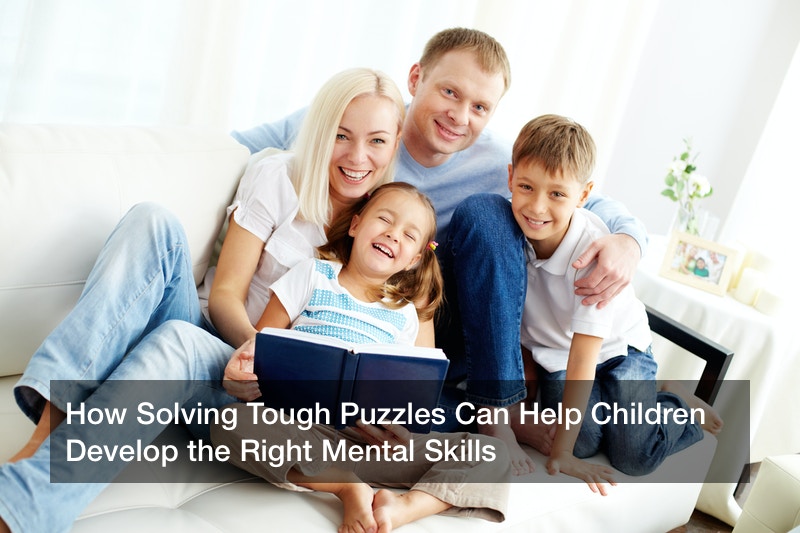How Solving Tough Puzzles Can Help Children Develop the Right Mental Skills

As a parent, you have to juggle many responsibilities in order to raise your child the best you can. It can always be meaningful to help your child inculcate the right habits and pastimes that can encourage proper development and the development of the right traits and characteristics. This can become all the more important if your child is hyperactive or has problems with discipline or aggression. There can be a lot of things thing to think about and you would always want to make the best decisions that can be beneficial for your child.
In this day and age, parenting has become even more complicated. With the advent of the internet, more and more children are suffering from a dependence on technology. Tech addiction is something that a lot of parents struggle with nowadays. Similarly, if your child is aggressive and has problems with discipline, there can be a lot of ways to deal with the situation. Hyperactive children with short attention spans can also create a lot of parenting problems that need to be adequately solved. This is where encouraging your child to adopt the right habits and pastimes can be really meaningful and provide a number of important benefits.
If you are looking for things that your child can do in order to pass time, it can be a good idea to think of things that can aid in mental development and help your child inculcate the right traits and qualities. A number of family games, sports games, and sports puzzles can be employed in order to achieve such benefits. However, one of the best things that you can get your child interested in would be jigsaw puzzles. Solving jigsaw puzzles can be a calm, productive activity that can provide quite a few important benefits that your child can really enjoy.
Most importantly, solving jigsaw puzzles can be a good influence on the mind and can help aid brain development. Solving puzzles intently puts the mind in a meditative state where it is relaxed and stimulated at the same time. The activity of solving tough puzzles can also accelerate the production of dopamine. This can lead to a feeling of happiness and contentment. Overall, solving puzzles can have quite an effect on the mind and you can definitely get your child interested in solving jigsaw puzzles if you go about it the right way.
In order to get your child interested in jigsaw puzzles, you have to introduce the concept of jigsaw puzzles to your child the right way. Choosing easy puzzles, to begin with, you can choose products that have pictorial themes that you know would resonate with your child. Then, you can explain to your child the basic concept of solving jigsaw puzzles and let the process begin. As your child starts to understand the challenges involved in solving puzzles, there can be a spark in curiosity and the development of the necessary skills and techniques that are needed to solve puzzles can begin.
Then, it can be a matter of keeping things interesting and challenging with new puzzle products. It needs to be a gentle transition to tough puzzles and you can choose puzzle products that have a gradual ramp in complexity over time to keep things fresh and challenging without having to overwhelm your child. Tough puzzles can be quite complex and involve a number of memory techniques that can be employed for an easy solution. With tough puzzles, it can be an activity that keeps your child engaged for a long period of time. With the enormous benefits this activity can have on the mind, it can certainly be something you employ at home as a parent.
Keeping these important points in mind, jigsaw puzzles can easily become an integral part of your parenting. This can also provide you with many hours of relief as this activity is expected to keep your child calm and engaged for many hours. With the important benefits that come with the territory and the scope for mental development, it can indeed be easy to understand why solving puzzles can be such an important activity for children of all ages.
